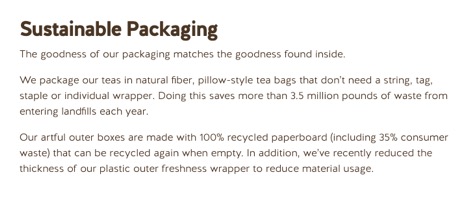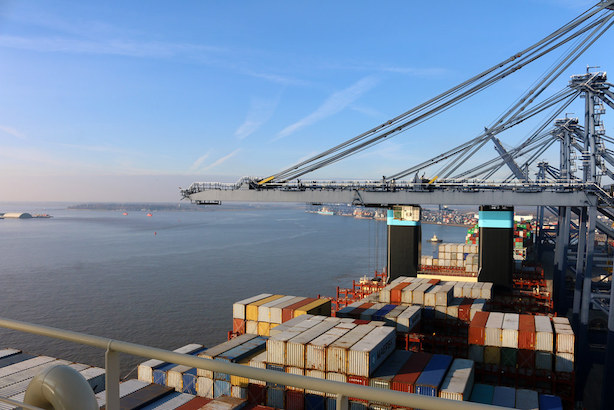By: Sydney Wess
Shipping materials can be costly and take a significant toll on the environment. In addition, the delivery process continues to account for large percentages of carbon emissions.
In fact, the EPA asserts that 29% of greenhouse gas emissions in 2017 resulted from the transportation industry. While this industry isn’t exclusively comprised of product deliveries, the influx of e-commerce transactions and delivery orders catalyzed by COVID-19 are significant contributors to emissions.
Additionally, the United States is responsible for producing large amounts of waste that negatively impact the environment. In 2017 alone, 139 million tons of waste was sent to landfills.
Keeping your packaging operations green will have both environmental and financial benefits for your business.
Minimize the Size of Your Packages
Shipping smaller packages will increase your ability to ship sustainably.
Attempting to ship volumes of large, bulky packages will impose significant roadblocks for those looking to be more environmentally friendly. This is most clearly visible in the logistics of delivering packages by truck, sea, or air.
When loading a truckload with freight, there is a limited about of space to be filled. Unnecessarily large packages take up more space than needed to effectively and safely be transported.
This will cost your business time, revenue, and the opportunity to work more sustainably. Minimizing packaging will allow you to optimize space during the transport of your freight.
To minimize the size of your packages, closely examine your current operations and the packaging you’re using. For companies making use of larger boxes, a switch to a lean solution that prioritizes cushioning may be the solution.
By streamlining cushioning and eliminating large boxes, companies like Dell have seen success. After decreasing their packaging sizes, they found that their products were less likely to be damaged during delivery.
This elimination of excess packaging material also saved the company over $53 million while keeping over 31 million pounds of packaging waste to be thrown away.
While restructuring how you package goods may take some brainstorming and innovative thinking, companies like Dell have shown that the investment is well worth the return, both financially and environmentally.
Opt for Lighter Packaging Materials
When designing a plan for making your shipping process more sustainable, it’s also important to consider the weight of your packaging.
Like the size of your packaging, the weight of freight within a truckload will also play a role in dictating how many units you can ship on each truck. Opting for lighter and leaner packages will optimize the volume of products you’re able to move at once.
This will decrease your carbon footprint will increase the overall efficiency of transporting goods. By moving more products at once, your team is more equipped to streamline its shipping process.
Additionally, lighter packages inherently require less material to produce. In lightening the weight of your packaging, you’re playing a role in conserving the resources used to create it.
Take VTT’s biodegradable stand-up pouch, for instance. It’s made from lightweight, yet sturdy materials that effectively minimize the weight of shipments.

Source: E+E
Stand-up pouches like these, according to Environment + Energy Leader, have increased 6.5% in adoption every year since 2015. They’re the fastest-growing packaging solution in the supply chain. This can be attributed to their cost-effectiveness paired with a growing interest in sustainable shipping.
Lastly, lean and light packaging is becoming popular with consumers, who value its portability and environmental benefit. As lighter packaging becomes more widely utilized, it’ll also become more accessible to your business.
Studies have shown that younger generations, in particular, want brands to make sustainable and ethical choices. Experts say that 71% of millennials want to engage with environmentally-friendly brands.
Adopting lighter packaging serves as an indicator to your environmentally conscious customers that you care about your carbon footprint. Opting for these lighter solutions is becoming more accessible to companies aiming to go green.
Utilize Environmentally-Friendly Packaging Products
Closely considering the size and weight of your packaging is definitely important to decreasing unnecessary transportation emissions and materials use.
However, opting for environmentally-friendly packaging is your chance to embrace the recycling of materials on your sustainability journey.
Green or sustainable packaging has a very low impact on the environment. This is a result of its eco-friendly materials and the little energy consumption needed to introduce products into the market.
According to the Green Business Bureau, green packaging:
Minimizes harm to the environment
Is easily recyclable
Biodegrades after disposal
Contains no harmful chemicals or plastics
This packaging has the potential to significantly decrease you environmental footprint and energy consumption.
Additionally, going green with your packaging materials can serve as a small component of your growing brand. For instance, Celestial Tea demonstrates and communicates its commitment to sustainable packaging on their website.

Source: Celestial Seasonings
They offer insight into the unexpectedly great environmental impact of simply removing the string, tag, and staple from their products. Additionally, they’re able to communicate their commitment to using recycled packaging materials. Their site offers them the opportunity to celebrate and share their accomplishments with their audience.
Given consumer’s growing desire to support companies taking social responsibility, prominently communicating your environmental efforts will help them find even greater value in the products you offer.
This consumer recognition is just an added benefit to the positive impact you’ll be having on the environment after employing green packaging.
Sustainable Shipping Practices are Cost-Effective and Eco-Friendly
Of course, sustainable packaging will have a positive impact on the environment. There are also several added benefits of adopting greener practices. By minimizing size, reducing weight, and incorporating eco-friendly materials into your packaging, you’ll be able to reap the environmental, financial, and brand-building benefits of going green.
 Sydney Wess is an editorial associate supporting supply chain content and research for Clutch.
Sydney Wess is an editorial associate supporting supply chain content and research for Clutch.
Views of the author are personal and do not represent the website’s views. To read more articles from Clutch, click here.
Thank you for reading. Please drop a line and help us do better.
Regards,
The CSR Journal Team


